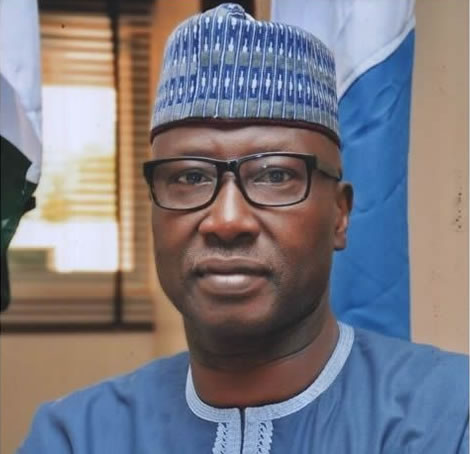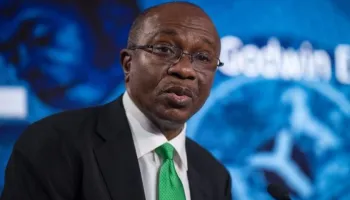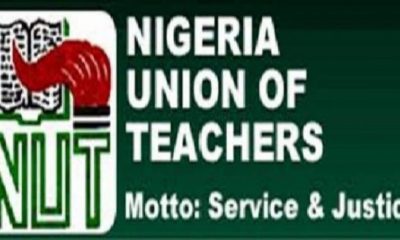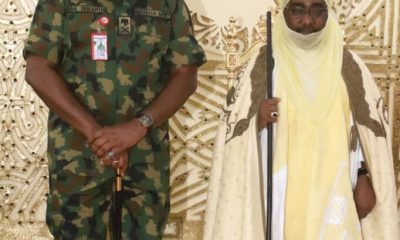Education
Buhari joins religious leaders begging ASUU to discard strike
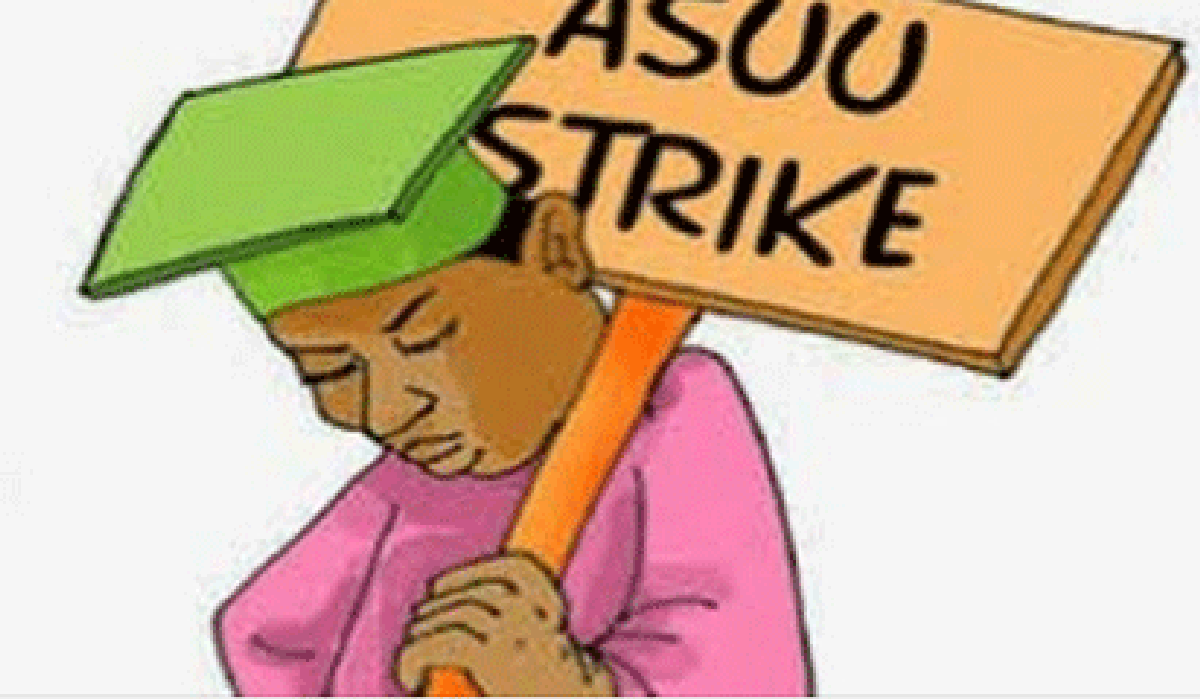
President Muhammadu Buhari commenced the week under review with a promise that the Federal Government would honour promises made to the Academic Staff Union of Universities (ASUU)
This the President said, was to prevent disruptive strikes, engender uninterrupted academic programmes and improve funding of education institutions.
The President made the pledge on Feb.
1, when he received members of the Nigeria Inter-Religious Council (NIREC) led by the Co-Chairs, the Sultan of Sokoto, Alhaji Sa’ad Abubakar, and the President of the Christian Association of Nigeria, Rev. Samson Ayokunle.ASUU, on Friday, expressed doubts over the ability of the Federal Government to resolve the lingering crisis in the education sector, particularly the universities, threatening that the union might soon commence an indefinite strike.
However, the President stated that no society which wished itself well neglected its educational system and all its component parts.
He, therefore, commended the leadership of NIREC for intervening in the year-long strike by ASUU and holding consultations with the parties.
Buhari had earlier hosted the 2022 Committee of Business, Political, Media and Civil Society Leaders to a dinner at the State House, Abuja, on Monday.
At the event, the president pledged his commitment to hand over a strong repositioned agriculture-led, diversified home-grown economy, stable democracy and revamped armed and security forces to the next administration.
On Feb. 2, the Nigerian leader congratulated President Umaro Sissoco Embalo of Guinea-Bissau for surviving Tuesday’s coup attempt in his country.
The President also inaugurated the Presidential Committee on the Repatriation, Return and Resettlement of Internally Displaced Persons (IDPs) in the North-East,on Feb. 2.
According to him, Nigerians in the North East will, in the coming months, witness a change from the protracted insurgency to peace and development in their respective communities.
He explained that the administration had embarked on a revised approach to address the 13-year conflict and insurgency in the region and would not relent in efforts toward a return to peace and normalcy.
Also on Feb. 2, the President presided over the virtual meeting of the Federal Executive Council (FEC).
The council approved over N115.4 billion for the dualization of the Kano-Kazaure-Kongwalam road linking Kano, Jigawa and Katsina states.
According to the Minister of Works and Housing, Mr Babatunde Fashola, the project is expected to be completed in two years, and will be financed through the country’s tax credit scheme.
The President met behind closed doors with the former governor of Imo, Sen. Rochas Okorocha at the State House, Abuja, on Thursday.
Speaking to state house correspondents after the meeting, Okorocha said he was in the Villa to seek President Buhari’s intervention over his ordeal with the Economic and Financial Crimes Commission (EFCC).
The News Agency of Nigeria (NAN) reports that Okorocha is being charged by the EFCC with allegations he conspired with others, including an APC politician and five companies, to steal N2.9 billion from public coffers when he was governor of Imo.
However, the former governor, who is currently the senator representing Imo West senatorial district, also accused the people he described as cowards of being behind his ordeal with the EFCC.
Buhari inaugurated the Revised National Policy on Population for Sustainable Development, as well as the National Council on Population Management (NCPM), on Thursday, in Abuja.
While inaugurating the policy and the council, the President stressed the need for urgent measures to address Nigeria’s high fertility rate.
He saw this happening through expanding access to modern contraceptive methods across the country.
The Nigerian leader, shortly after the inauguration on Thursday,.commenced a four-day trip to the Ethiopian capital, Addis Ababa, where he is currently participating in the 35th Ordinary Session of Assembly of the African Union Heads of State and Government.
The theme of the deliberation is: “Building Resilience in Nutrition and Food Security on the African Continent: Strengthen Agriculture, Accelerate the Human Capital, Social and Economic Development.’’
While in Addis Ababa, Buhari said the poor and vulnerable in Nigeria remained top priority for protection and lifting from the poverty cycle.
He stated this at the virtual official presentation of the Country Review Report of Nigeria at the 31st Africa Peer Review Forum of the African Union leader on Friday.
Buhari assured that social safety nets would be further sustained, while access to education and opportunities would be expanded.
The President also congratulated the Minister of Transportation, Rotimi Amaechi, on the conferment of the title of “Dan Amana,” (the trusted one) on him by the Daura Emirate Council, on Saturday.
He described the conferment of the title on Amaechi as a clear commitment to the harmonious relationship between the nation’s diverse cultures.
He commended the minister “for working with enormous energy to make the CHANGE we promised Nigerians a reality,” noting that “the change we are witnessing in the transport sector is an extraordinary legacy.”
On Feb. 5, the Nigerian leader met with the Prime Minister of Palestine, Mohammad Shtayyeh, at the ongoing African Union meetings, in Addis Ababa, Ethiopia.
Buhari assured that Nigeria would continue to pursue peace and progress in Africa, and other parts of the world, by consistently pushing for justice, fairness and inclusiveness in global affairs.
According to him, Nigeria remains unwavering in supporting democracy, development and good governance, particularly in ensuring the rights of individuals and institutions.
NAN reports that the President, who is expected back to Abuja from Ethiopia on Monday, participated in the opening of the 35th Ordinary Session of Assembly of the African Union Heads of State and Government, on Saturday. (NAN)
Education
FG vows full WAEC CBT shift by 2026 – Minister

The Minister of Education, Dr Tunji Alausa, has reaffirmed the Federal Government’s commitment to fully transitioning to Computer-Based Test (CBT) examinations for the West African Examinations Council (WAEC) and other exam bodies by 2026.
Dr Alausa made this known while monitoring the conduct of WAEC’s CBT examinations in Abuja on Wednesday.
He expressed optimism about Nigeria’s capacity to modernise its examination system and reduce widespread malpractice through digital innovation.
Commending WAEC’s initiative, the minister described the shift from traditional pen-and-paper exams to CBT as a historic and crucial step toward fairness and educational integrity.
“We are working very hard to eliminate fraud in our exam system, and WAEC is taking the lead,” he said.
Highlighting the advantages of CBT, Alausa noted that the system simplified the exam process while significantly curbing cheating.
“We now have clear evidence that when exams are done using technology, the level of fraud is minimised to almost zero,” he stated.
He further lauded WAEC’s internal safeguards, explaining that the CBT system was operated via a secured Local Area Network (LAN), making it “literally impossible” to hack.
According to the minister, by Nov. 2025, all WAEC multiple-choice exams will be conducted using CBT.
He added that essay questions and NECO examinations would follow suit by 2026.
On infrastructure and logistics, particularly in remote areas, Alausa acknowledged the challenges but assured that scalable solutions are in progress.
“Are we going to be ready to provide every single needed infrastructure by November? Absolutely not.
“But as we move into the future, we will be ready. We have to challenge ourselves as government,” he said.
He also addressed concerns over the logistics of conducting multiple exams.
“In WAEC, the average student takes about eight to nine papers.
“They do it over several days. Those are the logistics we, as administrators, have to work through, and we already are,” he explained.
The ongoing WAEC exams, which began on April 24, are scheduled to conclude on June 20, 2025.
A total of 1,973,253 candidates from 23,554 schools are participating. Of this number, 979,228 candidates are male, accounting for 49.63 per cent, while 994,025 candidates are female, making up 50.37 per cent.(NAN)
Education
We will Capture Out-of-school Children in Our Education Programmes – Enugu Govt
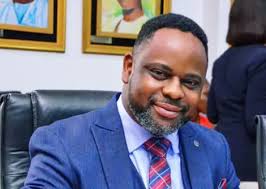
The Enugu State Commissioner for Education, Prof Ndubueze Mbah We will Capture Out-of-school Children in Our Education Programmes – Enugu Govt says the state government will redouble efforts to capture out-of-school children in its programme.
The commissioner gave the assurance on Tuesday in Enugu during the celebration of the 2025 Children’s Day held at the Nnamdi Azikiwe Stadium, Enugu.
Mbah said that the state was working in collaboration with community and faith- based institutions to ensure that no child was neglected or forgotten.
He encouraged them to be calm as they were not forgotten noting that they would be remembered through inclusive education programmes.
Mbah said that education was their right adding that the present administration was committed to making it a reality for them.
He, however, said that every child irrespective of status, gender, location or ability was valued and their welfare would be taken into consideration.
He said that they deserved to grow in a safe, nurturing environment with opportunities to dream and become successful as this administration would continue to protect their rights, well-being, and empower them through education, healthcare, and innovation.
“As we celebrate international children’s day today, remember that you are the leaders of tomorrow.
“Let your voices be heard, your talents be seen, and your dreams shall come through.
“To our school children, we commend your efforts, resilience, and passion for learning. You are the builders of the Enugu State.
“Government investments in smart schools, teacher training, digital tools, and innovation are for you to be equipped with skills for a future that has already begun,” he said.
In the same vein, the Secretary to Enugu State Government, Prof. Chidiebere Onyia, encouraged every child in the state to remain focused and work hard to attain their desired goal.
Onyia said that with the introduction of Smart Schools in 260 political wards of the state, every child in the state would soon compete with their counterparts globally.
He emphasised that the administration had investment heavily in education sector to ensure that both privileged and non privileged children are equipped with basic skills and knowledge.
The event featured march past by various public and private primary and secondary schools in the state. (NAN)
Education
Strike Looms as ASUU Accuses FG of Endless Agreement Negotiations, Others
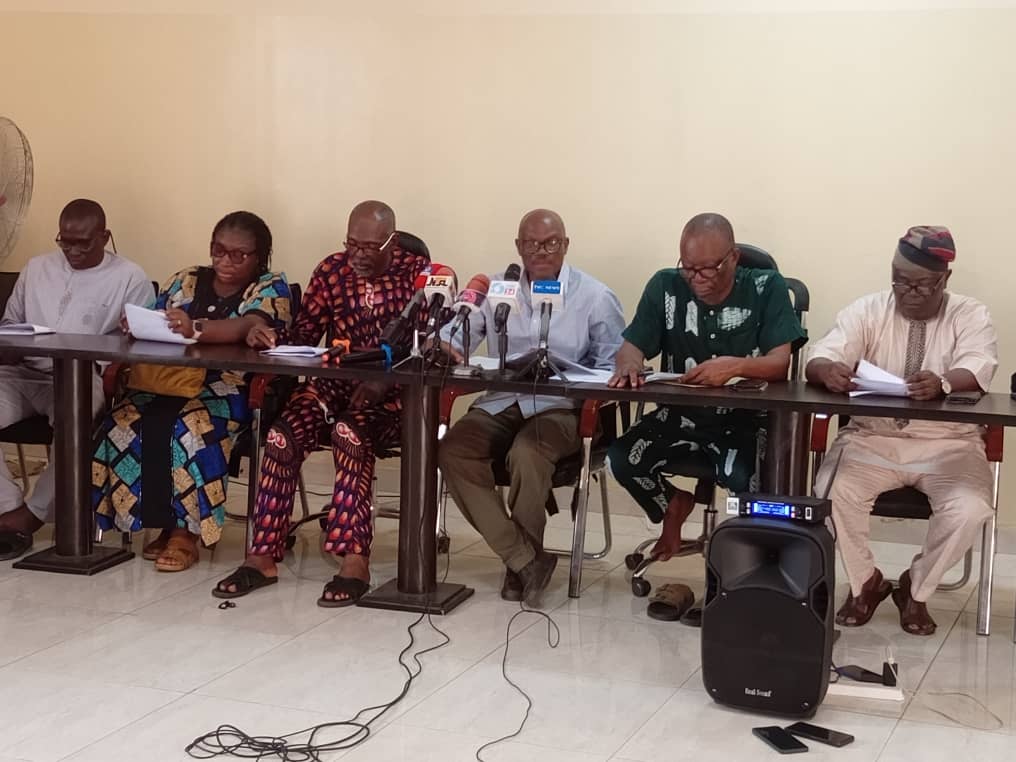
By David Torough, Abuja
The Academic Staff Union of Universities (ASUU) has once again raised the alarm over the Federal Government’s persistent failure to honour past agreements, warning that another nationwide strike may be imminent.
ASUU’s new President, Professor Chris Piwuna, at a press conference in Abuja on Friday criticised the government’s inaction on critical issues affecting Nigerian universities.
Piwuna demanded the immediate implementation of all Memoranda of Understanding (MoUs) and Memoranda of Action (MoAs) signed since 2013.
ASUU emphasised that fixing Nigeria requires fixing its universities, which are plagued by poor funding, stalled agreements and government neglect.
The Union also demanded the release of withheld salaries from the 2022 strike and payment to lecturers on part-time and sabbatical appointments affected by the IPPIS payroll system, while condemning political interference in university administration, unlawful appointments, and the undermining of institutional independence.
It further called for an education summit, proper implementation of past agreements, and a stop to the misuse of TETFund resources. It warned it will not remain passive while its members’ rights are trampled.
ASUU urged the government to resolve all outstanding issues to avoid further disruption. While open to dialogue, the union signaled potential industrial action if demands are ignored, reaffirming its commitment to the struggle for quality education.
“Almost three decades since Nigeria’s return to civilian governance, it is not yet Uhuru. The country is still pathetically trapped in the web of multifaceted political malfeasance graphically sign-posted by prebendal politics, mindless manipulation of electoral processes, brazen nepotism, and deliberate subversion of people’s will at every level of governance.
“The sum total of all these is that transparency and accountability have become rare commodities in the hands of the managers of the Nigerian state. Consequently, the generality of citizenry have become despondent, having lost hope and faith in government and its agencies.
“If given the desired attention, Nigeria’s universities should provide the solution ground to solving its multi-faceted and multi-dimensional problems. ASUU has remained focused in the struggle for improved funding and revitalization of these institutions.
“A starting point to achieve this noble goal is to prevail on government to address all outstanding issues in our previous engagements. This will create a conducive atmosphere for addressing the welfare issues of Nigerian academics for the optimal discharge of their statutory responsibilities as the think-tank of the country and mentors for future leaders in all aspects of national development. ASUU remains open to discussion in this respect.
“However, the Union would not continue to look helpless while the rights of its members are being trampled upon and washed away with reckless abandon.”
ASUU stated that the level of implementation of the 2009 FGN/ASUU Agreement is not encouraging, saying that although a few issues are partially implemented, many remain unaddressed.
These, it said include the conclusion of the renegotiation of the 2009 Agreement based on the Nimi Briggs Committee’s draft agreement of 2021; release of withheld three-and-a-half months’ salaries due to the 2022 strike; release of unpaid salaries for staff on sabbatical, part-time, and adjunct appointments affected by the Integrated Payroll and Personnel Information System (IPPIS); release of outstanding third-party deductions such as check-off dues and cooperative contributions; funding for the revitalization of public universities; payment of Earned Academic Allowances (EAA); concerns over the proliferation of universities by federal and state governments; non-constitution of some universities’ governing councils; and adoption of the University Transparency and Accountability Solution (UTAS) in place of IPPIS.
It noted that the government agreed to mainstream the EAA into salaries with the creation of an irregular allowance as a budget line in the 2026 Budget, after releasing N50 billion for the backlog and budgeting N29 billion for the payment of 2025 Earned Academic Allowances and agreed to release N150 billion as a revitalisation fund within four weeks from April 2025.
“However, we are still waiting for government to fulfil these promises. The Union has also reached an understanding with the Yayale Ahmed-led Committee, following the review of the report of the Nimi Briggs-led FGN-ASUU Renegotiation Committee in December 2024. Again, ASUU members have been left in limbo, waiting for the signing of an agreement five months after.
“Delegates at the UNIBEN National Delegates Conference exhaustively evaluated the government’s disposition in resolving outstanding issues with the Union and expressed regrets that nothing has significantly changed in the last two years.
“The irreducible minimum that can guarantee industrial harmony in the Nigerian University System (NUS) is for government to speedily address all outstanding issues including conclusion of the renegotiation of the 2009 FGN/ASUU Agreement, payment of the withheld three-and-a-half months’ salaries, release of the backlog of promotion arrears, payment of withheld salaries of sabbatical and part-time lecturers on account of not signing into the discredited IPPIS, and addressing the unjust victimization of ASUU leaders and members in some state universities.
“Beyond these, we demand a faithful implementation of all issues arising from our previous Memoranda of Understanding (MoUs) and Memoranda of Action (MoAs) government signed with ASUU since 2013.”
ASUU also called on state governors and visitors to these universities to, without further hesitation, resolve lingering issues and reinstate its members without delay in the interest of justice and industrial peace.
On the erosion of university autonomy, the union expressed deep concern. “ome recent developments in Nigeria’s public universities are of grave concern to our Union. We are discomfited by the ongoing attempts to completely erode the autonomy of public universities by the political class and the bureaucrats.”






